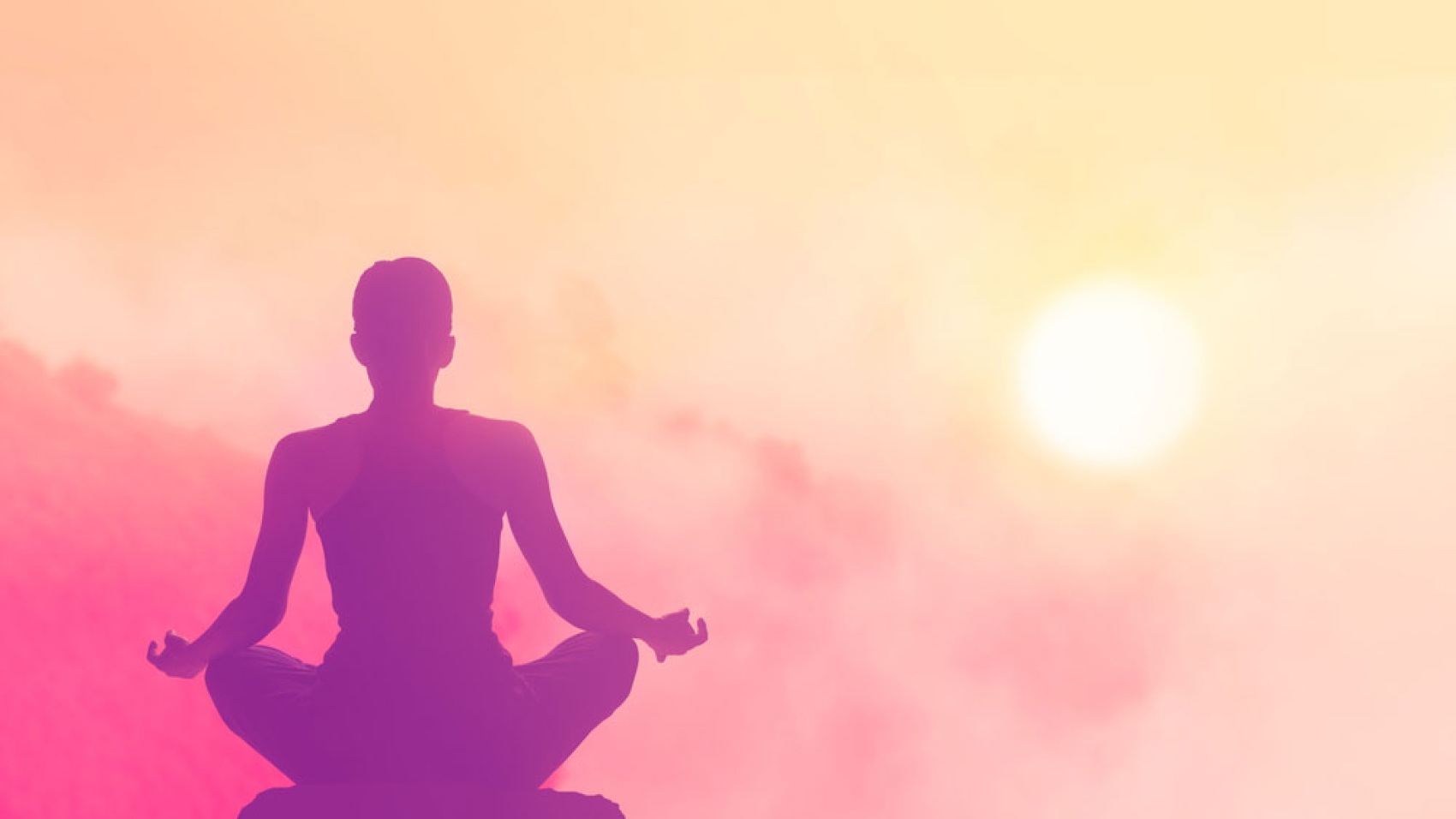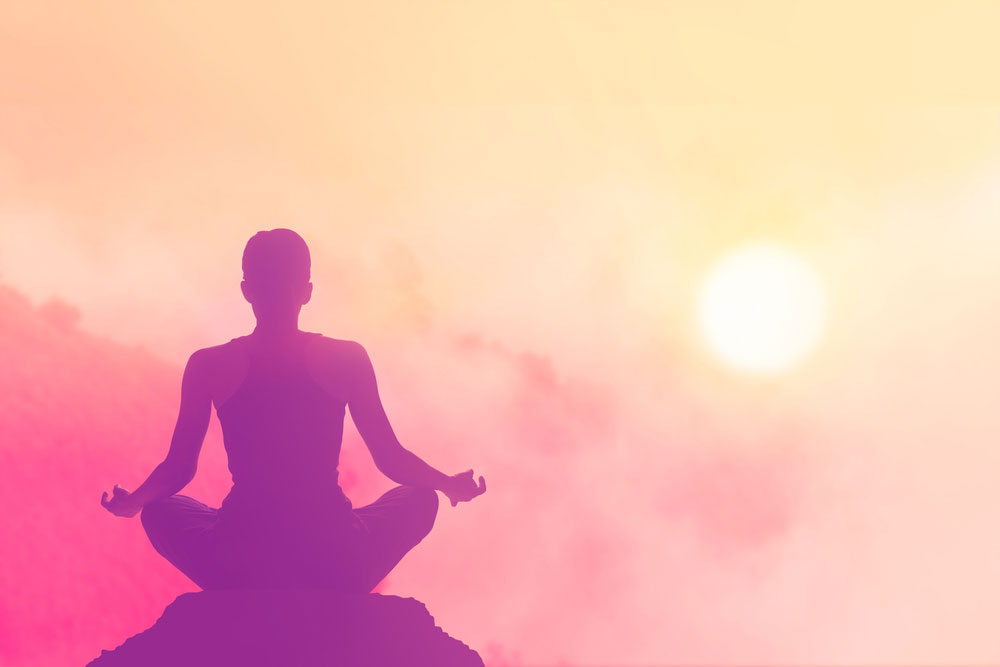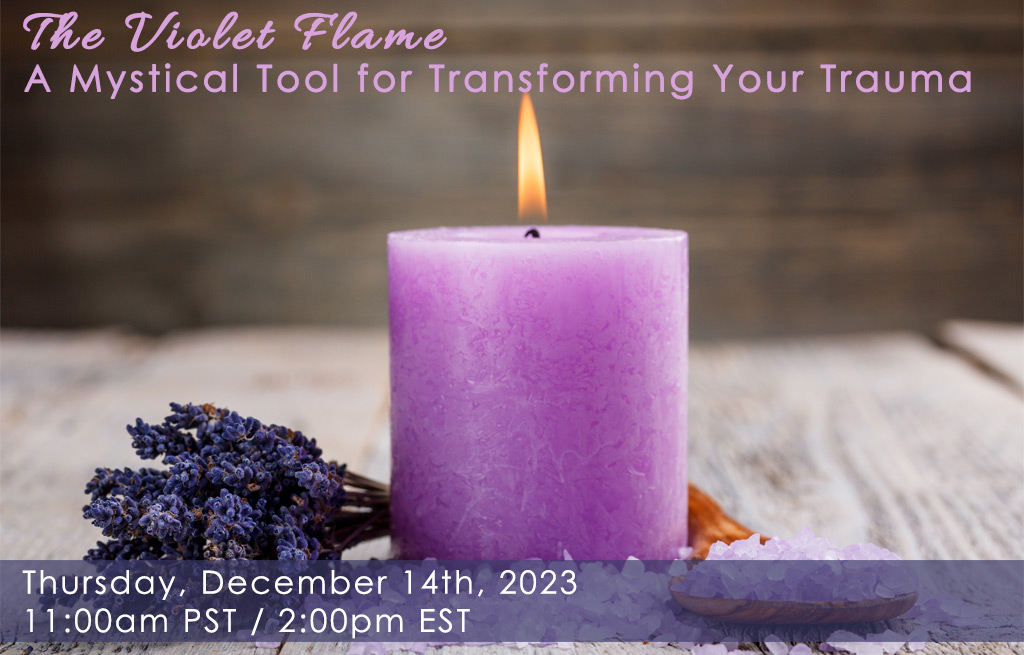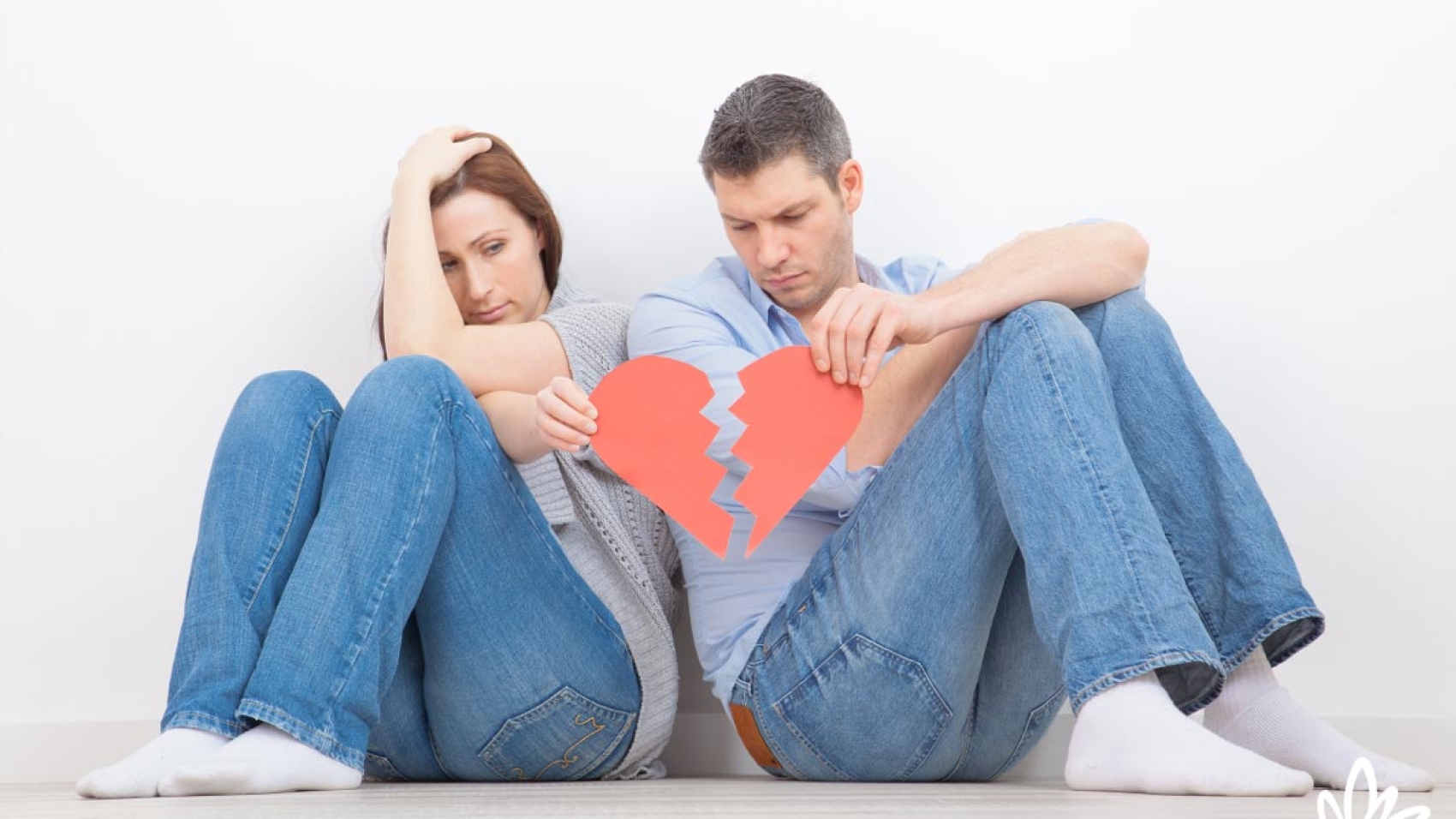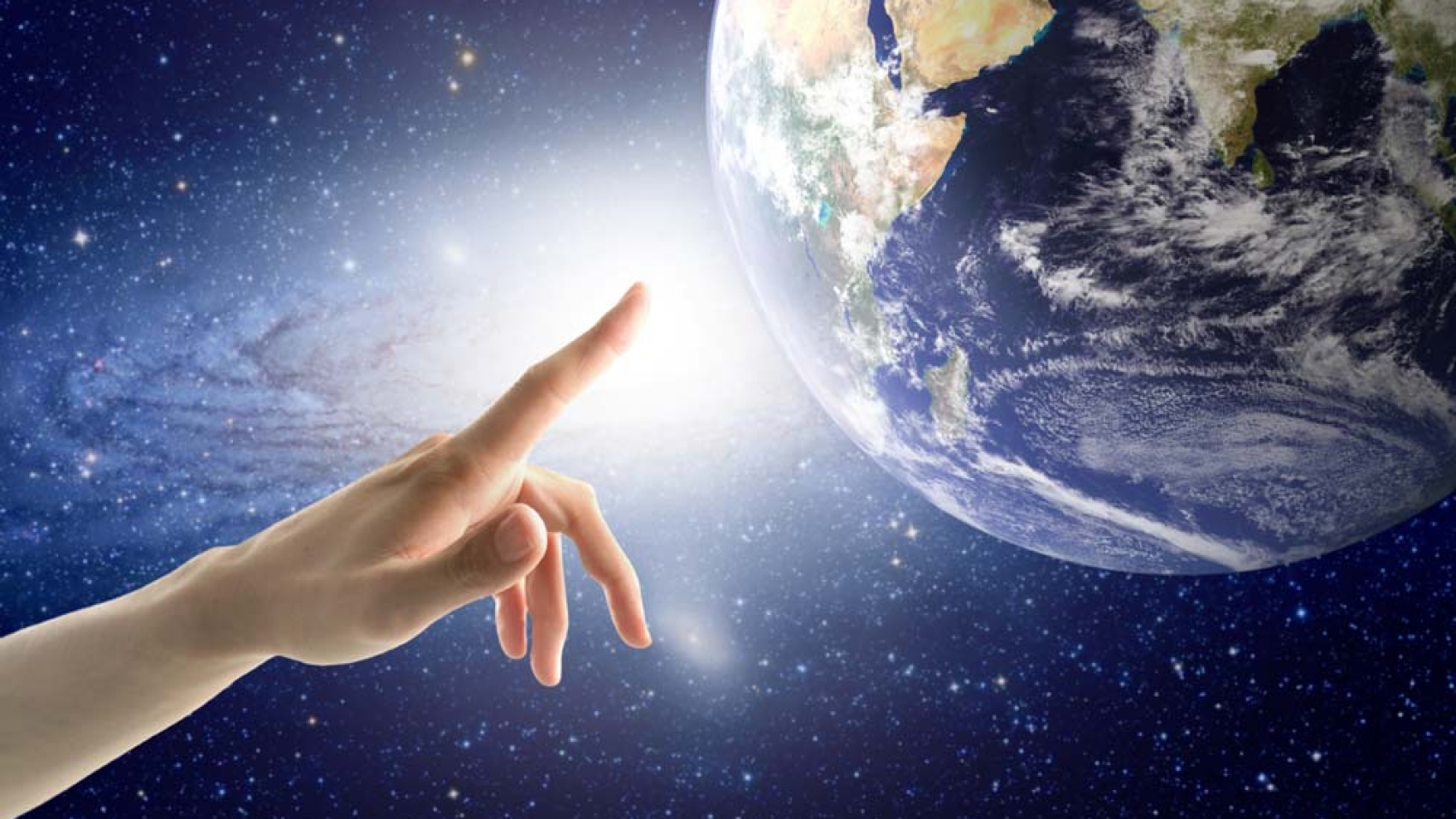How To Lose Weight Without Dieting
It’s nearly the end of January and chances are you’ve already blown your resolution to eat right and lose weight this year. Resolutions and dieting just don’t work. So what can you do about those unwanted and unhealthy extra pounds?
You can throw away your scales—the one in your bathroom that makes you cringe, and the one in your kitchen where you so carefully weigh out your food portions (before sliding into that pint of cookie dough ice cream). You can stop tracking calories in/calories out. You can stop worrying about which diet, and there are so many of them, might work this time.
Instead, use intuitive eating, a throwback to our ancestors.
Intuitive eating relies on your connection to your own body. In a culture based on intellect rather than intuition, in a workplace that requires sitting in front of a computer all day, in the fast-paced digital era where there is always a screen available to suck you into your head, you are probably not all that aware of your body . . . until it’s too late.
You didn’t notice what you were doing until the whole bag of chips was gone. Or your knees were hurting and the doctor said those extra 30 pounds weren’t helping. And you swore you would stop, until you remembered you had stashed a chocolate bar in the lower desk drawer.
Why do we so often eat in a way that hurts us rather than nurtures us? There are a lot of theories for why so many people eat in a way that is ultimately harmful to themselves—to their health, their appearance, their self-esteem. But, as a teacher of Ayurveda who’s worked with literally thousands of individuals, I know it all comes down to each individual’s makeup, the time of life they are in, and what they are dealing with emotionally. There is no one way for all, ever.
You may eat too much because you looked awesome in high school and could “get away with” eating everything, until you couldn’t. Or you were a slightly overweight child who grew into an even more overweight adult who is now treading the line of obesity. Or you picked up a wine habit that really added on the calories. Or you took medicine that put on the pounds. Or … or… or…
And you tried Weight Watchers and the Mediterranean diet and veganism and vegetarianism and raw food and fasting and the keto diet and eating right for your blood type and . . . you may have even lost weight, but put it right back on.
So throw away the rule book.
If you’re the type who isn’t hungry in the morning, don’t worry about “breakfast is the most important meal of the day.” I have a completely healthy 70-year-old student who has her cup of coffee in the morning and hits the gym for an hour before eating breakfast. On the other hand, if you wake up hungry enough to eat a cow, go ahead, your body is telling you it needs the protein.
The trick is to know when you’ve had enough. As a student of Ayurveda, I would counsel you when you’re eating, take a bite or two or three and then put down your fork. Notice how well you’re chewing. Did you swallow quickly in your haste to eat? That food will be harder for your stomach to digest. Try stopping when you’re halfway through your plate of food. Notice: are you still hungry? Are you emotionally satisfied? Do you want to eat more because you’re needing more food, or just because there is food still on the plate? Were you taught to finish your plate, or are you able to leave food on your plate when you’re no longer hungry? Are there enough of the six flavors (sweet, sour, salty, pungent, bitter, and astringent) in the food you’re eating to be satisfying? You need those six flavors at every meal or you’ll be inclined to overeat because you’re not feeling satiated.
Try eating half your lunch and keeping the other half for a mid-afternoon snack. Maybe you need a lot less food to make your body happy at each meal than you’re thinking. But don’t save food beyond a couple of hours, as it becomes amma, or too dead to do anything except put on pounds and wreak havoc at the cellular level.
Remember, no rules. If you don’t feel like eating, don’t. If you don’t like kale, don’t eat it. If you are craving pasta with alfredo sauce, eat half the serving and then evaluate how you feel.
If you binge, notice how your body feels, as well as your mind. The more you realize what food is doing to your body and how it makes you feel, the more in tune with your body you will become and the healthier and happier you’ll be.
So what should you eat? Anything you want that makes your body feel good rather than painful. How much? Enough to just satisfy hunger, not enough to bring on pain. One of my venerable teachers from the East taught me to eat just enough to fit in the palm of my hand; surprisingly, it is enough.
In a sense, this way of relating food to your body, instead of simply obeying the psychological forces behind your way of eating, is a spiritual path, not just a health fix. You have to become more conscious, more aware of what you’re doing. From Ayurveda, I know we have to acknowledge and respect our digestion—it is the gateway between the food we put in our mouths and the nurturance our bodies receive.
Take a moment and feel your stomach: take a deep breath, deep enough so you can actually feel the middle of your body. Bring your awareness down from your thinking mind and into your body. It is, after all, the temple that is housing your soul.
Make this your resolution: This year I will be kind to my body.
Staying Friends After Divorce
It doesn’t have to be a horror show. Divorce, that is. It doesn’t even have to be a battle. True, the marriage is ending. Your role is changing. You didn’t think it would happen to you, but it is. Even when you have all the money in the world.
Jeff Bezos, the founder and CEO of Amazon, and his wife of 25 years, MacKenzie Bezos, are sitting on a billion dollar fortune, 30 times over. So money obviously wasn’t the problem in their relationship. But people change over a quarter of a century. McKenzie is a novelist, although she worked as an accountant back at the beginning of Amazon. When it was up and running successfully, she stepped out of the business to concentrate on writing and raising their four children. Jeff is busy being a business mogul and the world’s richest man. Desires change, directions shift. Last week they announced their divorce in a joint statement on Twitter. I think it’s important to read the whole tweet.
“We want to make people aware of a development in our lives. As our family and close friends know, after a long period of loving exploration and trial separation, we have decided to divorce and continue our shared lives as friends. We feel incredibly lucky to have found each other and deeply grateful for every one of the years we have been married to each other. If we had known we would separate after 25 years, we would do it all again. We’ve had such a great life together as a married couple, and we also see wonderful futures ahead, as parents, friends, partners in ventures and projects, and as individuals pursuing ventures and adventures. Though the labels might be different, we remain a family, and we remain cherished friends.”
Isn’t that an incredible attitude toward a divorce!
How is it even possible? How can you split up and still be friends? Aren’t you supposed to hate the other, say bad things about them to the kids, and never see each other or speak again unless absolutely necessary?
A successful relationship is built on mutual respect, admiration, and affection. And over the long term, like 25 years of marriage, two individuals learn how to manage any conflict between them. They trust each other, and share a sense of meaning and purpose in their lives. Obviously something has to change for a marriage to split up, and the Bezos have not been forthcoming on whatever situation created their divorce, but they are handling it as mature adults. They aren’t blaming each other. They speak respectfully about each other. They plan to continue sharing their lives—from the divorce announcement itself to raising their four children—as friends, just not as husband and wife.
You may think, well, of course there’s no problem; they have all the money in the world. But money isn’t the only point of contention in the breakup of a relationship; often it’s simply a divergence of interests. It’s not a sign of failure to divorce; instead, focus on all the good things that you got out of the relationship, and be grateful for them. Remember the affection that first brought you together. Respect the person enough to say kind things about them to the kids, co-workers, and friends. You want to go in different directions, but don’t want to lose the other. You started as friends and can stay friends.
I have a student who, when she got divorced, shared a lawyer with her soon-to-be ex, who wrote up their settlement together, saving many dollars and much animosity. They were married 20 years and are still friends, now many years later, working with each other on projects. It is possible.
That doesn’t mean, of course, that there isn’t personal heartbreak. Divorce can be traumatic but you should not feel like you failed; there is no moral rule that a relationship must last a lifetime. Be pleased with the good times that you did have and leave the relationship with as much love and respect as you entered into it. You’ll be glad you did.
You Are a Vital Part of the Universe
There are still a few days left in the seasonal opening that occurs around the winter solstice, a time period running from December 12 through January 12, for deep spiritual exploration.
So I want you to do something. Even though it’s cold, step outside on a clear night and look up at the great vault of the heavens at the vast number of stars. Those tiny pinpoints of light are actually large celestial bodies, all moving through space in the stately dance of our solar system. And our solar system is only one among many.
Send your awareness out, out beyond our planet; out beyond our solar system with its orbiting planets, moons, asteroids, and comets; out beyond the multiple suns in our Milky Way galaxy; and further out beyond the billions of distant galaxies that make up our universe. There is no stopping point, no boundary, no end.
You are as vast as the universe
As you look out into the enormity of space, do you feel small? Insignificant? Powerless? Do you feel like “you” stops at your skin? While it’s true that your physical body, one of 7.7 billion on our planet, is infinitesimally tiny when compared to the universe, you are made from the same stardust as the huge celestial orbs of multiple galaxies.
You are as vast as the universe. You hold within yourself the infinity of cosmic creation, the birthing of stars, the mystery of life. As Walt Whitman wrote in “Song of Myself”: “I am large, I contain multitudes.”
When you allow yourself to expand into the boundless and limitless universe, you connect to your own immensity. Yes, you are the child of Mother Earth and Father Sky, an amalgam of dark and light, conflict and harmony, imperfections and stunning abilities. You contain multitudes. And the universe recognizes your unique existence, just as it acknowledges every spark of life in each plant, animal, and human on earth, each seeking its own merging with the light into the unity of universal unconditional love.
Outer and inner space
One of my students visited the Kennedy Space Center over the holidays and told us how impressed she was by the enormous size of the Saturn V rocket that blasted the Apollo astronauts to the moon, and the courage it took for those early space travelers to sit atop that monstrous rocket about to be hurled into the unknown with the force of 7.5 million pounds of thrust. And yet going to the moon is but a baby step in the exploration of outer space.
“Inner” space also seeks to be known. As many questions as scientists have about outer space and the planets and stars of our solar system and beyond, so do you have questions about the unknowns of your own inner space. What is my purpose here? Who am I? What is my path to happiness? The rocketship that launches you into this type of discovery is meditation and other contemplative practices—ones that make you look inside.
One of the seven principles of Hermes Trismegistus, written in the Hermetic sacred texts, is: As within, so without; as above, so below. This interconnectedness of all things is one of the great secrets of life. What you think and feel inside yourself is expressed or reflected in the outer world. It means there needs to be harmony between your inner spiritual realm and the physical world you inhabit (including your body) in order to grow in consciousness and expand into the furthest reaches of inner and outer space.
All the great spiritual teachers have expounded on the same lesson. Plato called self-knowledge the “very essence of knowledge.” Confucius instructed the Chinese emperor to deal honestly within himself as well as dealing honestly with all in his empire. Muhammad put it like this: “That which perceives this world is sight, while that which perceives the World of the Unseen is insight.”
In the Vedic Upanishads, it is said:
“Thus we look to the world
Without and see not the Self within us.
A sage withdrew his senses from the world
Of change and, seeking immortality,
Looked within and beheld the deathless Self.”
As you stand outside on a cold winter’s night, gazing up at the endless firmament, the vast dome of the heavens, breathe as one with the universe. Your breath is the breath of the universe. Your eyes are its eyes. Its pulsing heart is the beat of your heart. You are as immeasurable as the stars, which shine with your reflected light.
In these next few days, feel how expansive you and your chakras really are. Know that you, a tiny dot of physicality on the third planet around a single sun, are a vital part of the universe. And as you awaken, so does the cosmos.

